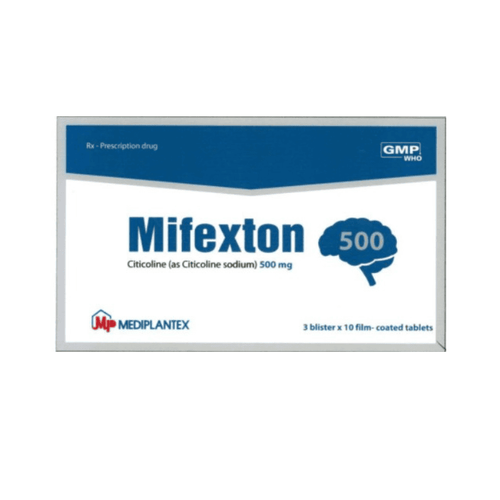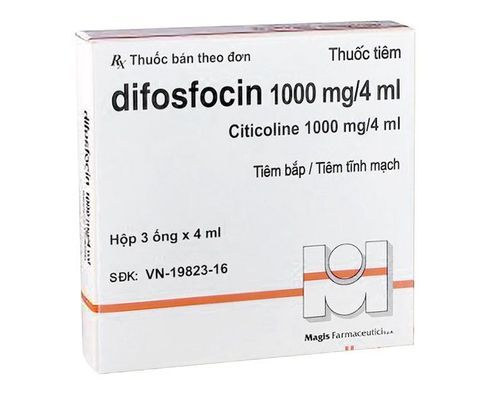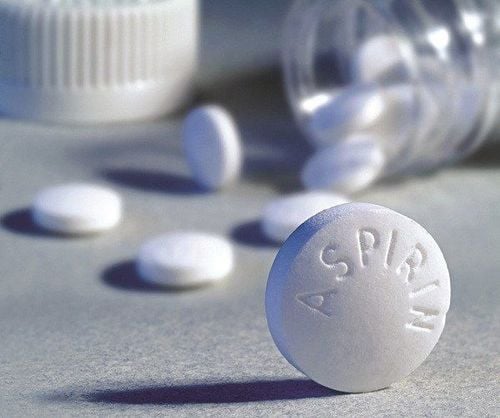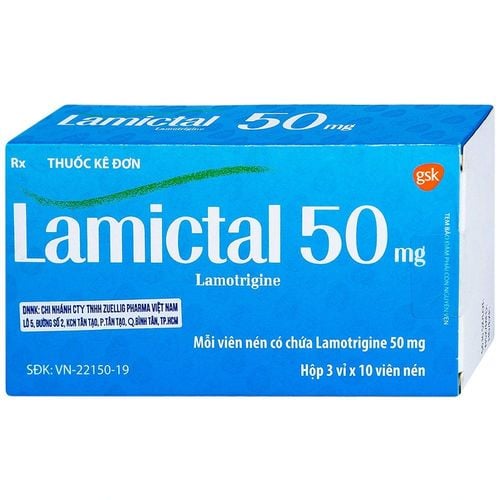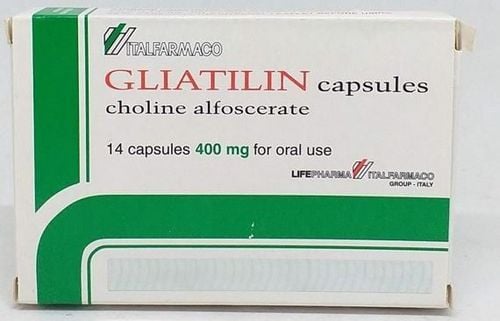This is an automatically translated article.
Tisunane belongs to the group of psychotropic drugs, often indicated in the disorders of brain neurotransmitter dysfunction, increased cerebral perfusion and increased cerebral oxygen consumption. What is the mechanism of action and precautions when using the drug?1. What is Tisunane?
Tisunane has the main ingredient is Citicoline - a substance that stimulates the biosynthesis of the phospholipid membrane structure of nerve cells, improving ion exchange activities across the cell membrane; stabilization of cell membranes, fluid reabsorption in cerebral edema; Inhibits the activation of phospholipase enzymes A1, A2, C and D, reduces the formation of free radicals, maintains the cell's antioxidant system. Tisunane significantly reduced disease progression in patients with acute ischemic stroke, slowing progression of ischemic brain injuries. In patients with head trauma, the drug accelerates recovery, reduces severe sequelae after injury. In addition, Tisunane also improves the level of attention and cognition, improves memory due to pathologies related to cerebral ischemia. The drug is completely absorbed after oral administration, distributed to most tissues in the body and crosses the blood-brain barrier. After entering the circulatory system, it binds to cell membranes, cytoplasm and mitochondria, participating in the structure of phospholipids. Tisunane is metabolised in the liver, excreted in feces, urine and through CO2 in the breath.
2. Indications of the drug Tisunane
Tisunane is indicated for the treatment of the following pathologies
Acute or subacute cerebrovascular accident due to cerebral hemorrhage, cerebral ischemia, cerebral palsy. Support to improve memory and concentration in patients with memory impairment, head trauma, Alzheimer's patients, elderly patients. Patients with loss or disturbance of consciousness due to cerebral ischemia, brain damage, head injury, after brain surgery, after stroke. Support movement recovery in patients with hemiplegia after cerebrovascular accident. Support in the treatment of tremors in Parkinson's patients.
3. Contraindications of the drug Tisunane
Do not use Tisunane in the following cases:
Patients who are allergic to Citicoline or any other ingredient of the drug. The patient has hypotonia of the parasympathetic system. The patient is in a coma or undergoing brain surgery. Pregnant and lactating women are not contraindicated to use Tisunane. Note when using Tisunane:
Do not use high doses intravenously in patients with prolonged intracranial bleeding. Drugs can trigger and worsen symptoms in patients with epilepsy. Monitor renal function before and during use in patients with impaired renal function. Tisunane should be used with caution in patients with a history of depression. Citicoline may affect memory and brain development in fetuses and young children. Therefore, the drug should only be used by pregnant and lactating women when absolutely necessary.
4. Tisunane drug interactions
Concomitant use of Tisunane and drugs containing Centrophenoxine, Meclophenoxate changes the bioavailability of the drug. Tisunane enhances the effects of L-Dopa when taken concurrently. When used in combination with any other drug, it is necessary to have the prescription and guidance of a specialist.
5. Dosage and usage
How to use:
Tisunane is prepared in the form of hard capsules with a content of 500mg. Swallow the tablet whole with water, avoid crushing or splitting the tablet to drink. Dosage:
Usual dose: Take 1-2 tablets (500mg)/day. Disorders of consciousness due to head trauma or after brain surgery: Take 1 tablet (500mg)/time x 1-2 times/day. Support movement recovery in patients with hemiplegia after stroke: Take 2 tablets (500mg)/time/day. Parkinson's patients with severe tremor symptoms: 1 tablet (500mg)/time/day. Tisunane has low toxicity, so symptoms of toxicity due to overdose are rare. If you find any unusual signs while taking the drug, you should stop taking the drug immediately and go to the medical facility for monitoring and treatment. If you miss a dose, take it again as soon as you remember, however if it is almost time for your next dose, skip the missed dose and take the medicine as scheduled. Do not double the missed dose of Tisunane.
6. Tisunane side effects
Some unwanted effects may be encountered when using Tisunane:
Nausea, vomiting, epigastric pain, diarrhea, digestive disorders. Fatigue, headache, agitation. Low blood pressure, arrhythmia (fast or slow). Allergic reactions, urticaria, facial flushing, rash. Blurred vision, chest pain, hallucinations, shortness of breath (rare). In summary, Tisunane is a drug that improves the conduction function of the central nervous system, helping to improve memory and cognition in elderly patients, patients with dementia or patients with lesions. in the brain. It is necessary to use the drug exactly as directed and prescribed to achieve the best effect.




